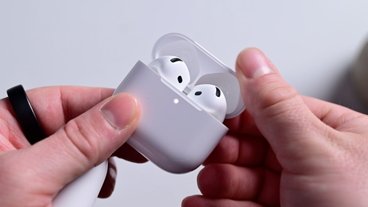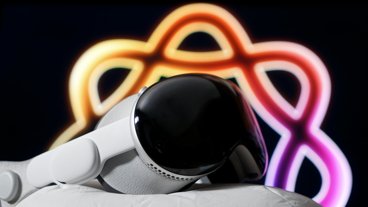The Internet Protocol (IP) address of a device is a unique identifier that allows communication between devices. An IP address is assigned through a method known as Dynamic Host Configuration Protocol (DHCP), and these addresses can dynamically change over time on a private network as devices disconnect and reconnect.
A DHCP client, such as an iPad, will "lease" a unique IP address to a device on a network for a set period of time. Once that time has elapsed, the DHCP client asks the server to renew that lease. Apple's iPad, however, does not go through that renewal, according to information from the Office of Information Technology at Princeton University.
Instead, the office has found that the iPad will incorrectly continue using an IP address without renewing the lease, usually for hours. The issue is resolved when the iPad asks for a new DHCP lease, or the iPad disconnects from the network.
The information suggests it is a software issue within iPhone OS 3.2, and is likely something that Apple could repair through an update to its mobile operating system.
The problem was found to be common on Princeton's campus, with more than half — 25 of 41 — of all iPads demonstrating the malfunction as of April 18. If that ratio bears out on a larger scale, there are likely a huge number of iPad owners experiencing similar issues, as Apple sold more than 500,000 devices in its first week.
The report noted that some devices have demonstrated the malfunction several times, and eight devices were outright blocked from the university's network.
"When a DHCP client malfunctions this way repeatedly, Princeton blocks the device from using those campus network services which rely on the device's DHCP client respecting lease times," the IT office said. "These include our wireless services. We do this to protect other customers of those services from the disruptions caused by the malfunctioning devices."
The school has published a temporary workaround for the issue, but is working with Apple and providing them with technical data in hopes of solving the problem. That data was sent to Apple on April 7.
The IT office also noted that it has been incorrectly attributed with diagnosing the cause of Wi-Fi signal issues or connectivity issues that have been widely reported by iPad users. The university noted that information is inaccurate, as its documentation relates only to a DHCP client issue, not Wi-Fi signal or connectivity issues.
Princeton has been able to replicate the problem regularly by allowing the iPad to lock its screen before the DHCP lease renewal time, and allowing it to remain locked, with the screen off, until the DHCP lease has expired.
Princeton's workaround has users reconfigure the iPad's settings so that the screen never locks. This can be done by going to Settings, General, Auto-Lock and choosing "Never." Users must also turn off Wi-Fi before they manually lock the screen, turn the iPad completely off (rather than just locking it), or simply leave the iPad on without locking the screen.
"We recognize that this workaround represents some inconvenience to the iPad customer," the documentation reads. "We view the workaround as a temporary workaround to allow these customers the opportunity to use their devices on the campus network until there is a fix from Apple."
Soon after the iPad was introduced earlier this month, users began to report connectivity issues with the device. One of the most common problems experienced relates to rejoining a Wi-Fi network after the iPad has been restored from sleep. Apple responded by issuing a support document.
Wi-Fi is currently the only method by which users can access the Internet on their iPad. Apple revealed on Tuesday that its 3G capable model, which offers high-speed wireless data over cellular networks, will be released in the U.S. on April 30.
 Neil Hughes
Neil Hughes



-xl-m.jpg)


-m.jpg)






 Malcolm Owen
Malcolm Owen
 William Gallagher
William Gallagher
 Mike Wuerthele
Mike Wuerthele


 Thomas Sibilly
Thomas Sibilly
 Wesley Hilliard
Wesley Hilliard
 Marko Zivkovic
Marko Zivkovic







50 Comments
I was at Princeton for an internship last summer, and I have to say that their network is ridiculous. My MacBook Pro got banned for a couple days because of some detail of how VMWare Fusion shared the connection. Had to hack the os to fix it. Bottom line, OIT at princeton is a bunch of (oh shit, here comes godwin's law!) Nazis, and have the network locked down to a ridiculous degree. This nonsense doesn't reflect poorly on Apple, but on Princeton for having a bizarrely non-standard wifi network.
C
Rather nasty bug. Guess I'll just be assigning a static address at home. Anywhere else, 3G. That should suffice until the bug fix.
I was at Princeton for an internship last summer, and I have to say that their network is ridiculous. My MacBook Pro got banned for a couple days because of some detail of how VMWare Fusion shared the connection. Had to hack the os to fix it. Bottom line, OIT at princeton is a bunch of (oh shit, here comes godwin's law!) Nazis, and have the network locked down to a ridiculous degree. This nonsense doesn't reflect poorly on Apple, but on Princeton for having a bizarrely non-standard wifi network.
C
You have to wonder why there aren't tons of universities reporting similar problems.
I thought the issue was that it holds an IP even while in sleep? It seems more like it is by design then anything. If you haven't left the network, why give up the IP? Maybe they should expand their subnet. This would make sense as to why it isn't a problem at other universities, they thought ahead and have a higher class subnet or supernet.
A software glitch in Apple's iPad causes the device to continue using a network-assigned IP address after its lease has expired, according to data collected by Princeton University....
While it's definitely a bug in Apple's software that's at the root of it, if you read the report carefully, you can see that this is a "problem" of Princeton's own making.
20 devices (campus wide over a multi-week period), *sometimes* don't release their IP??? Seriously? And the only effect if they did absolutely *nothing* about it, would be that once in a while a user would get an "IP in use" dialogue box before they were instantly handed a valid IP?
Wow, that's totally a good reason to ban the devices campus wide.